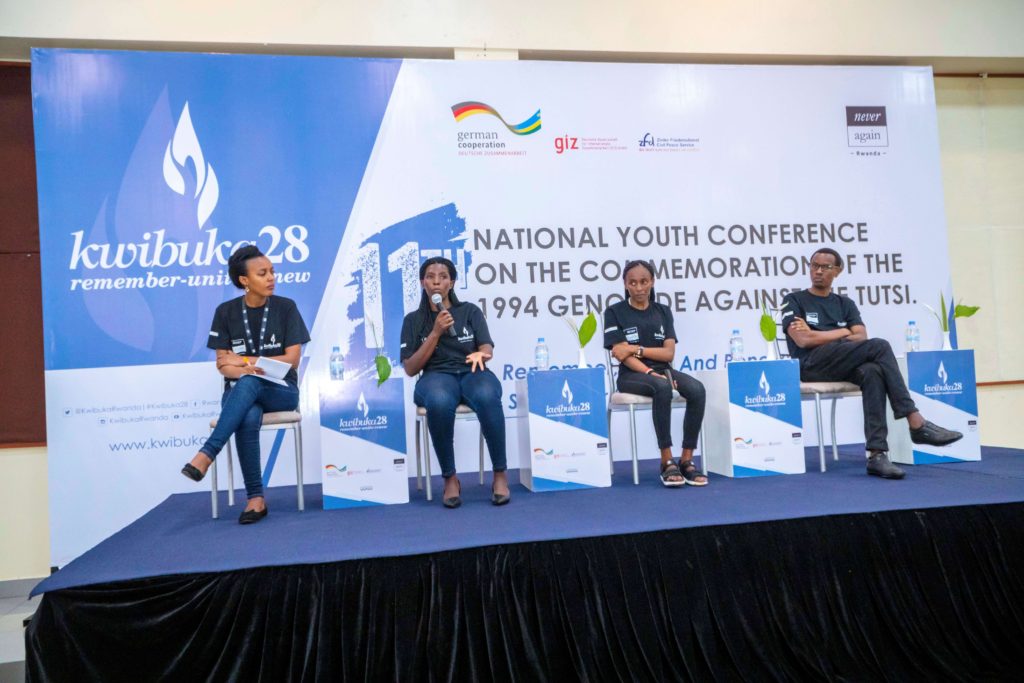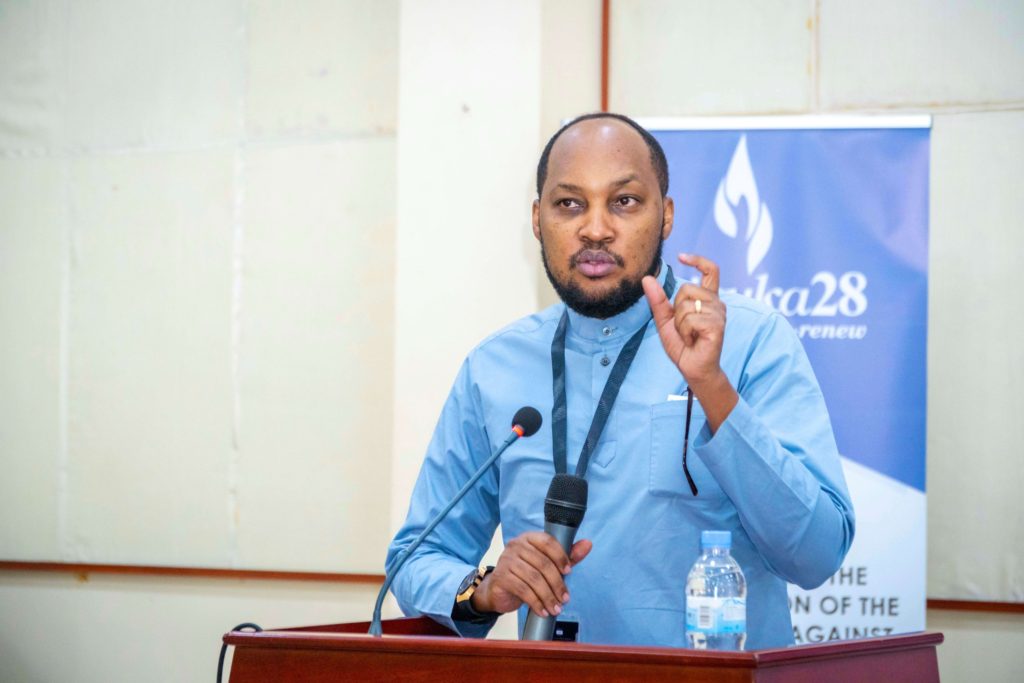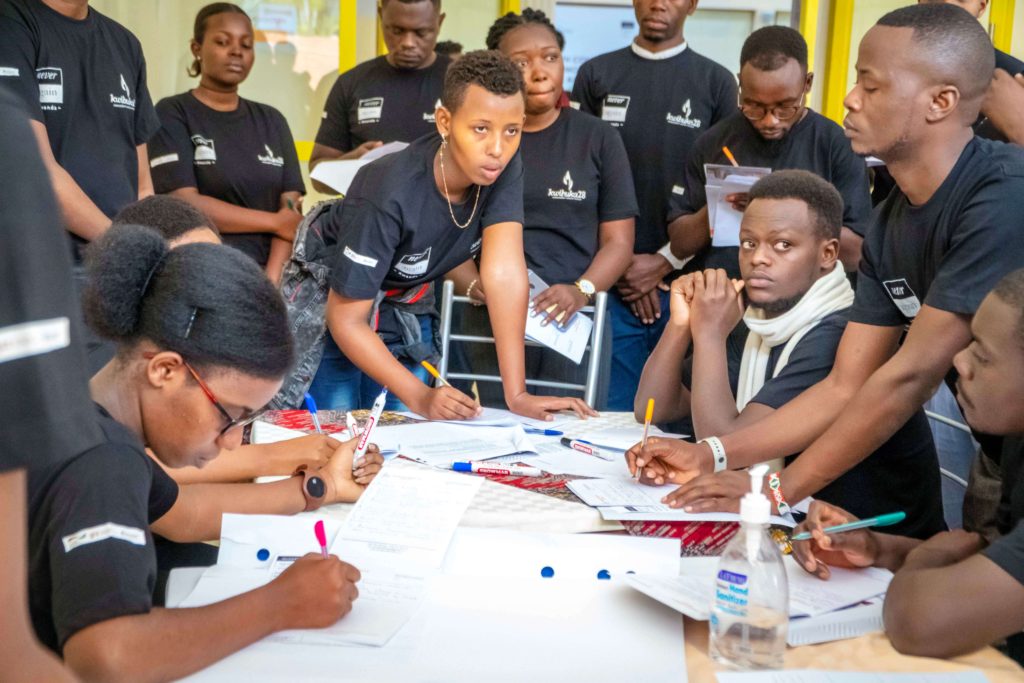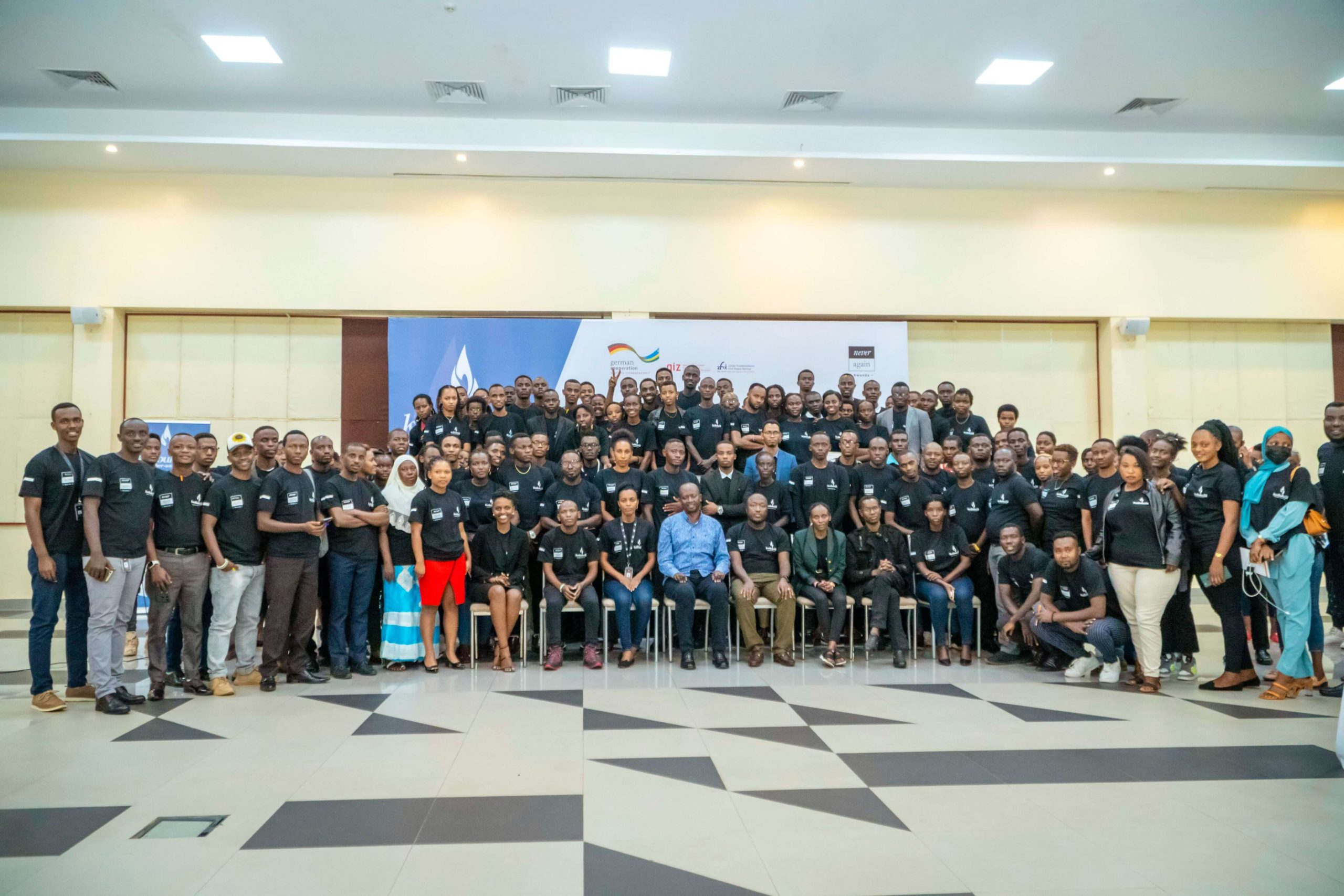The 1994 Genocide Against the Tutsis left a severe impact on all Rwandans. Many youths representing various social backgrounds have suffered the remnants of the atrocities in different ways. Even with the various effects on the youth, safe spaces for storytelling have been an important approach to healing their wounds and contributing to a better future.
In its various interventions and push for positive impact, Never Again Rwanda has created a safe space for peace that serve as a platform for dialogue, healing, and reconciliation for the older and younger generation. These spaces serve as a point of engagement with the youth, to provide them with opportunities to tell their stories.
Some of these spaces include the annual NAR Youth Commemoration Conference, that covers commemoration policies and practices of the 1994 Genocide Against the Tutsis. This year, on June 9th, the annual youth conference followed the them of “Remember, Unite, Renew: My Story, Your Story, Shaping Our Future.” The conference brought together young people from different backgrounds who had been affected in the 1994 Genocide Against the Tutsis. These youths embodied incredible courage in sharing their stories of resilience, journeys to overcoming past and present trauma, and their journeys to healing.

One of our participants, Irene Mizero, used this platform to share his story as a nine-year-old who started a bitter life, when his parents were imprisoned for their involvement in the genocide. During this time, he took on the responsibility of taking care of his siblings and found the courage to visit his parents regularly. Realizing that he was not discriminated against due to his parents’ crimes, he began looking for ways to contribute to Rwandan unity and reconciliation; in this spirit, he founded Mizero Care Foundation. Mizero says, “Young people should aspire to live in a country free of division and hatred, like our generation experienced. We must inherit peace and reconciliation for the next generation.”
Uwamahoro Claudine, whose parents were killed during the 1994 Genocide Against the Tutsis, suffered greatly because of her unidentified identity. Fortunately, in the past few days, she had been reunited with some of her loved ones. Despite her bitter experiences, she created a foundation of more than 30 people to help others reunite with family members. She added: “We stand before you as proof that the Tutsi Genocide took place and that all our efforts are needed to deal with its aftermath, and to combat the ideology and rejection of genocide.

The Executive Director of Never Again Rwanda, Dr Joseph Nkurunziza Ryarasa, called upon all stakeholders to engage young people, give them the opportunity to tell their stories with confidence and learn to actively listen to others. “Now more than ever, it is important for us to take important lessons from our history and use the available platforms to reflect on how we can become active citizens.”

Everything we emphasize shows that we must draw strength and resilience from our past and honestly discuss how to build a peaceful future. All stakeholders must also invest energy to create new spaces and strengthen existing ones because we cannot shape the future without facing our history with open and honest discussion.


